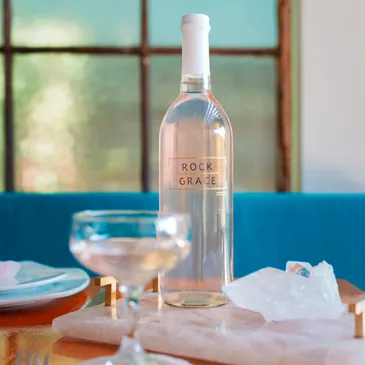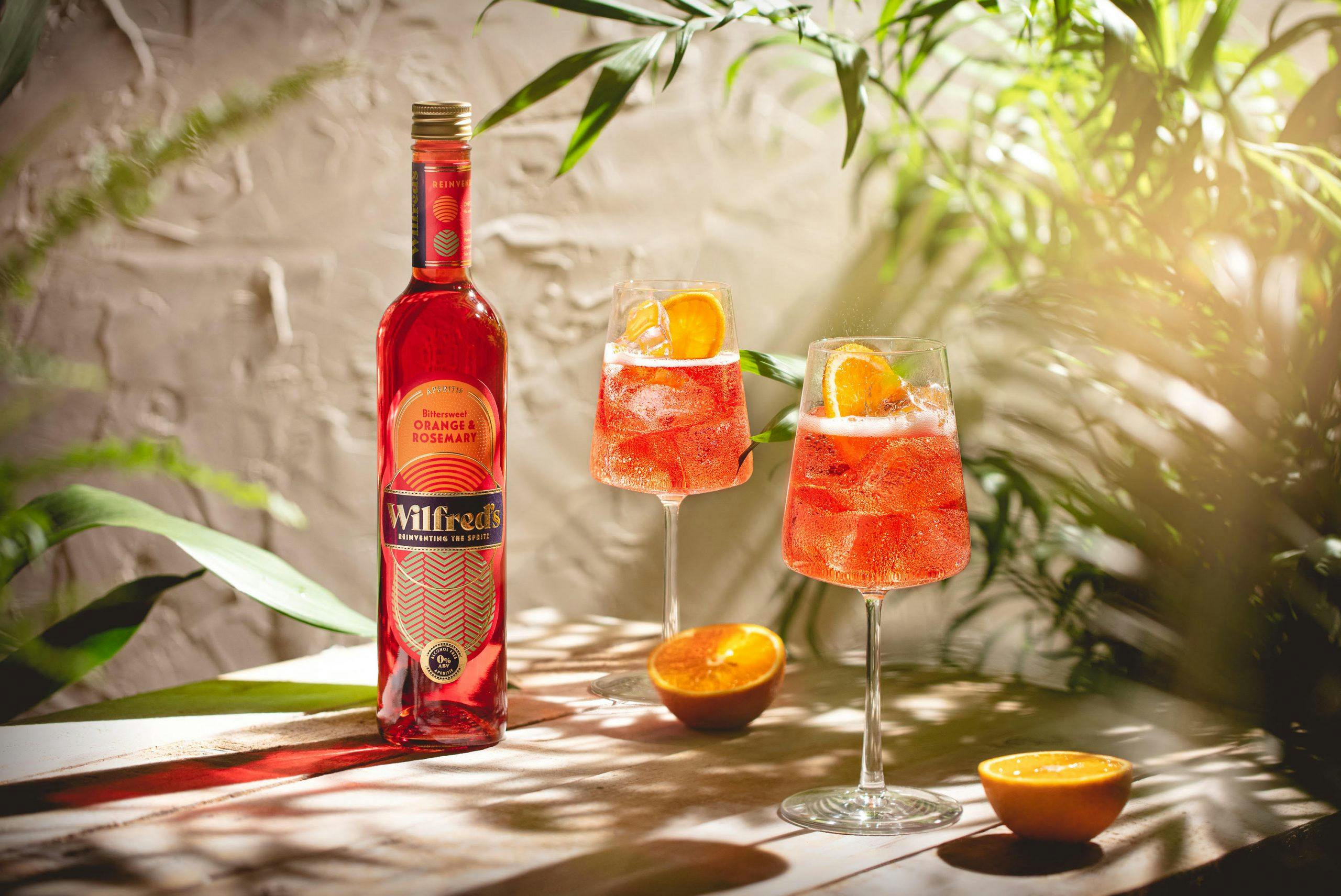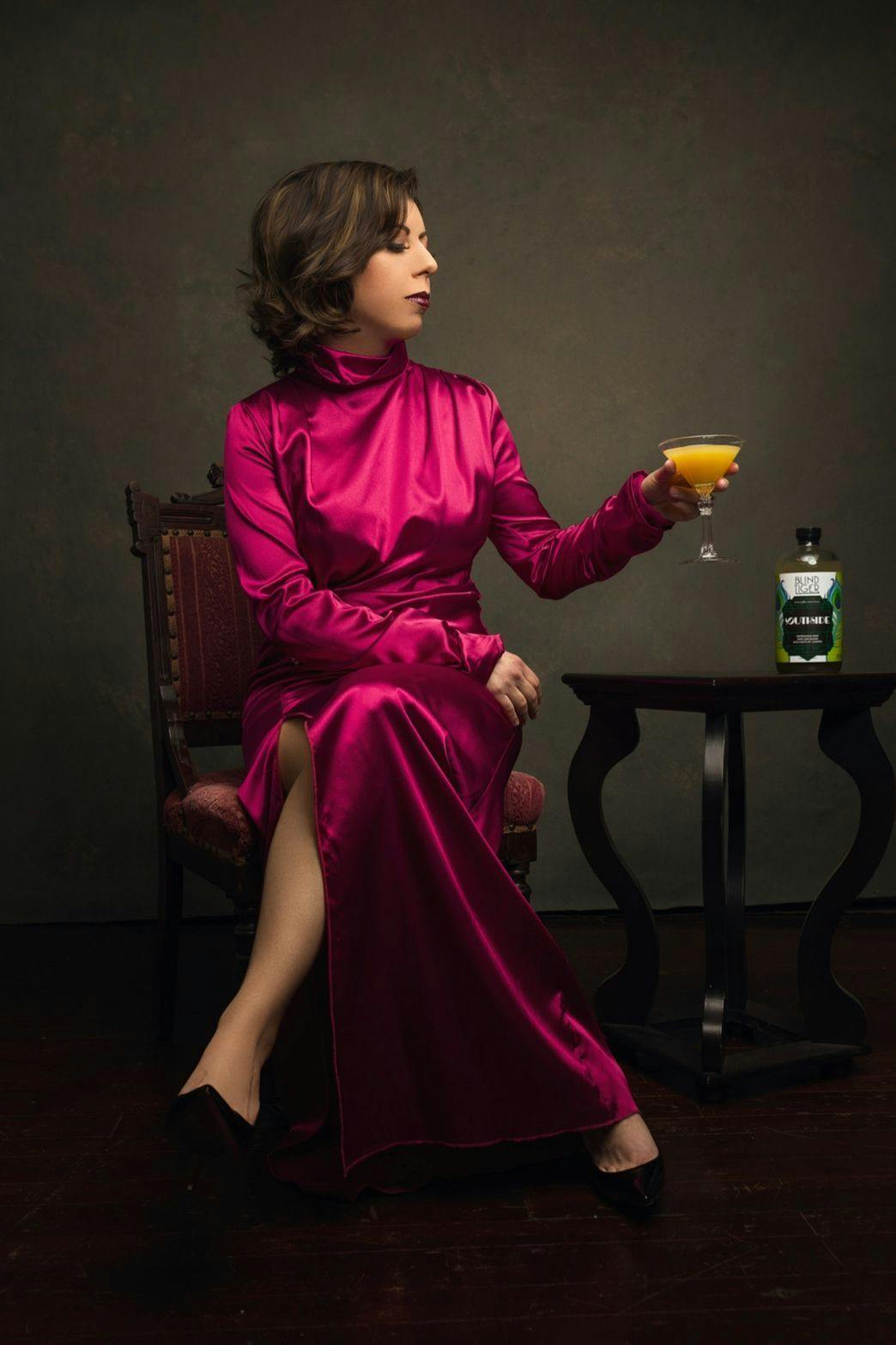It comes as a shock to no one more than myself that for the past two years I have, for the most part, been avoiding alcohol. But I have to admit, drinking soda as an alternative doesn’t really appeal to me. Happily, there are other options afoot, from companies that have thought through every aspect of the beverage crafting process to create something non-alcoholic, yet upscale, that feels like a treat.
Elevated drinking
Graham Wasilition’s company, Tennyson, has produced Black Ginger, made with botanicals but no alcohol. His goal, he says, was to provide an option for consumers looking for a high-end, elegant beverage they could sip, while not feeling out of place or short-changed.
“We created a bold, sophisticated, layered beverage that you drink in two-ounce increments, over the rocks or make a cocktail out of,” he says, adding that due to botanicals like dandelion, bergamot, and gentian root, his products are all better-for-you, too.
The product is largely designed for Millennials and Gen Z who, “think about everything they put on and in their body,” Wasilition says.
But, he expects this to appeal to everyone, from those choosing not to consume alcohol because it’s mid-week to abstainers. “It’s the people who just want to push themselves to drink better. Our mission is to bring the fun lifestyle to that crossover person.”
Female-focused

If Black Ginger skews towards a male consumer, it has a female-focused counterpart in beverages from Seattle-based Rock Grace.
This company offers three products, Rock Grace Sparkling, Ruby Reserve, and New Moon Release, which look like champagne and wine and are pink or sport pink labels. The products are all non-alcoholic, and are infused with botanicals, adaptogens, and crystals to provide health benefits; they’re zero calorie and sugar free.
Anne Hulett launched Rock Grace in 2019 to meet the need for non-alcoholic beverages that feel a little more special.
“There’s been a huge boom in non-alcoholic beverages,” she says. “It’s about having something special, in a special glass, and having that calming feeling.”
Ditto in the U.K.
The trend towards non-alcoholic beverages is happening both east and west of the Atlantic.
Last year London gin-maker Sipsmith launched its first non-alcoholic gin to meet a growing need.
“FreeGlider was painstakingly crafted over the past few years using [our] team’s collective experience and passion for creating a delicious and perfectly-balanced non-alcoholic spirit,” says Sarah Collis, distillery tour executive. “More conscious consumption is something we’ve been witnessing and championing for a number of years now.”
As with the American products, FreeGlider is aimed at anyone not wanting to drink, but most of all, Collis says, “at people looking for an enjoyable and elevated sipping experience, whatever the occasion.”
And the drink itself, she says, checks all the boxes. “Sipsmith FreeGlider is a credible substitute for the flavor sensation of spirits. Citrus harmonizes with juniper to ensure a perfectly balanced sip, with a hint of capsicum replicating the customary alcohol warmth, resulting in a full-flavored distilled spirit with the all-important mouthfeel.”
Spritzing up spritz

In July 2020, London-based Chris Wilfred Hughes launched Wilfred’s, a bittersweet orange and rosemary spritz. “I became increasingly frustrated by the uninspired, overly sweet and usually unhealthy non-alcoholic options available … so started my quest to reinvent a drink for the new era of drinkers, a drink that captured all the complexity of the greats but without the alcohol,” he says.
He was mainly targeting “the discerning drinker who likes a delicious cocktail full of complexity without taking themselves too seriously.” As for the drink, he says, “flavor, quality and complexity were of the utmost importance, and this mindset led to over 18 months of experimentation and more than 100 unique recipes.”
No passing fad
The trend towards alcohol-free is driven largely by younger consumers, says Richard Hall, chairman of Zenith Global, food and drink experts in Bath, England. “Younger people are starting later and are not going through a binge phase as much as previous generations. Social media, social pressure, social acceptability, cost and COVID are all recent factors contributing to this.”
But the market conditions are certainly helping, he adds. “Innovation in no- and low-alcohol products … is the other key dynamic. These products used to be a sacrifice or compromise. Now there are hundreds of excellent choices. At the moment, the mission is to mimic. In time, innovation will branch out more into new concepts and greater functionality, with sustainability, wellness and society contribution more embedded.”
“The trend of non-alcoholic drinks or mocktails is definitely a positive trend,” says Darren Tristano, CEO of consulting firm Foodservice Results, Chicago, Ill., “With all the people who are non-drinkers or alcoholics on the wagon or someone underage, it’s a nice way to build inclusion into an occasion.”
RangeMe supports the non-alcoholic industry
With the increased interest in no-ABV adult beverages, it should come as no surprise that this category was among the earliest to see activity on RangeMe when the platform launched its direct purchasing capabilities earlier this year. Blind Tiger Spirit Free Cocktails was founded by Rebecca Styn, and includes a line of non-alcoholic versions of cocktails that were popular at speakeasies (often referred to as “Blind Tigers”) during the prohibition.

At the beginning of the pandemic, lockdowns forced Styn to close her Erie, Penn.-based speakeasy-style restaurant, Room 33, to indoor dining. In addition to ramping up Room 33’s food menu for takeout and delivery, Styn started offering non-alcoholic versions of its cocktails-to-go.
“I realized that there weren’t many options for people who didn’t drink for whatever reason and had noticed over the past couple of years that more functional, natural and better-for-you drinks have been gaining popularity,” says Styn. “At Room 33 we had a non-alcoholic part of our menu, and it continued to grow over time.”
Due to fantastic responses from customers, Styn wanted to expand to retail, and applied for a major grant through Ben Franklin Technology Partners, which provides investment capital, business support services, and operational assistance to emerging tech-startups and small manufacturers. She was awarded the first-place prize of $50,000 in its Northwest PA BIG IDEA contest and the People’s Choice Award of $2,500.
Styn is a RangeMe Premium member and set up her digital storefront as soon as it became available. She is now receiving purchase orders from retail buyers directly through RangeMe. “It was one of the easiest setups I’ve had to do on this type of platform,” says Styn. “Plus, it connects to my premium RangeMe profile, enabling buyers to see our entire offering.”

